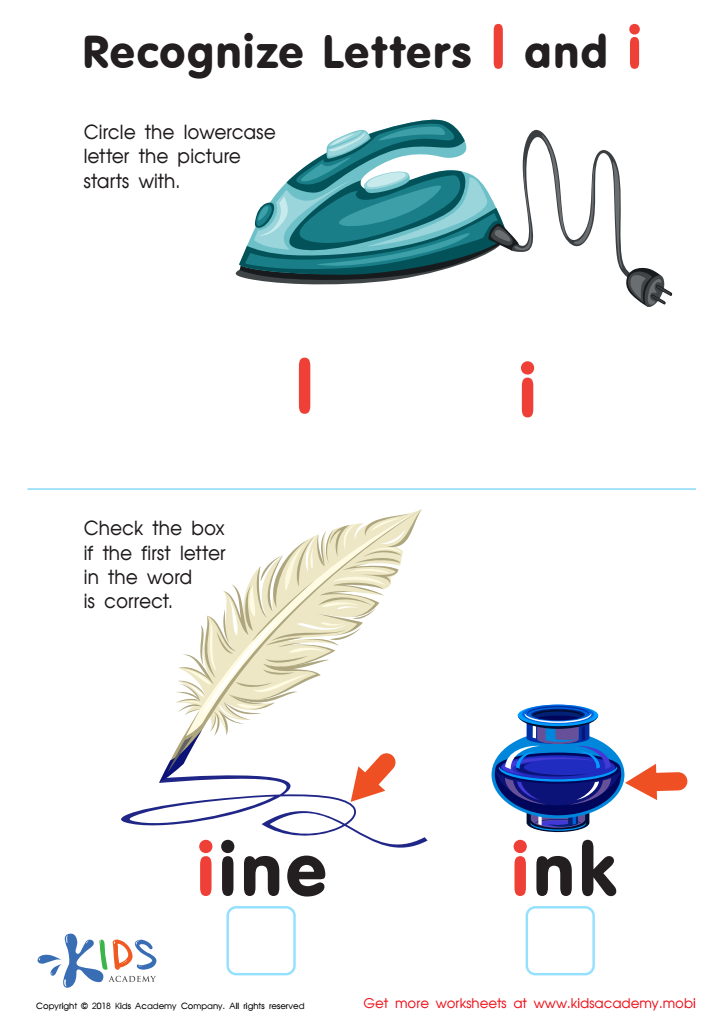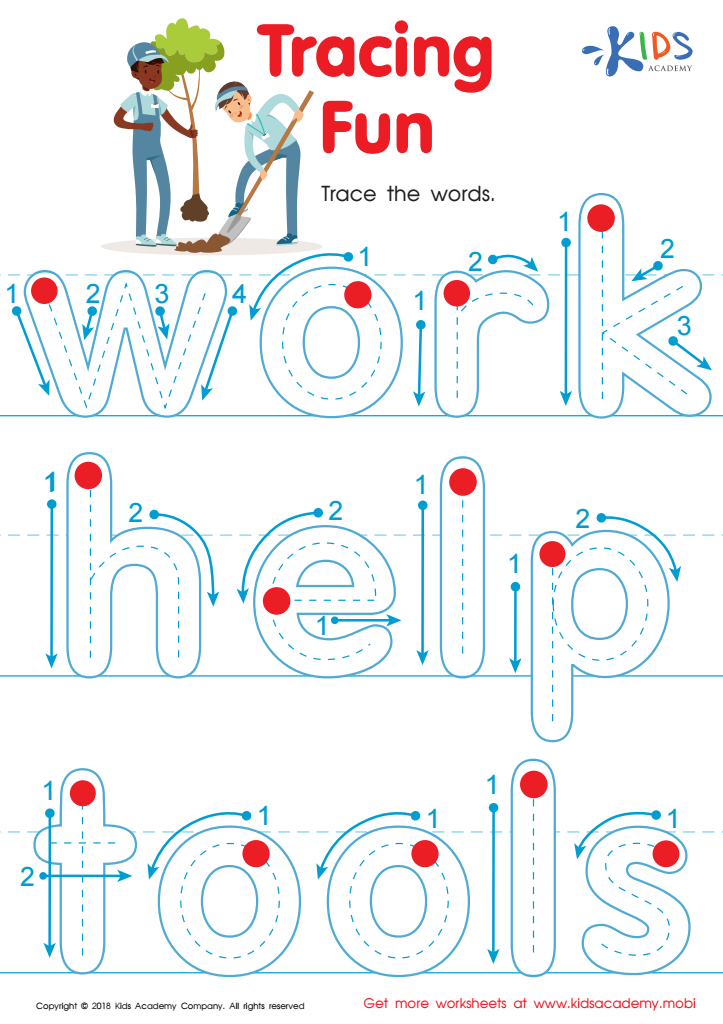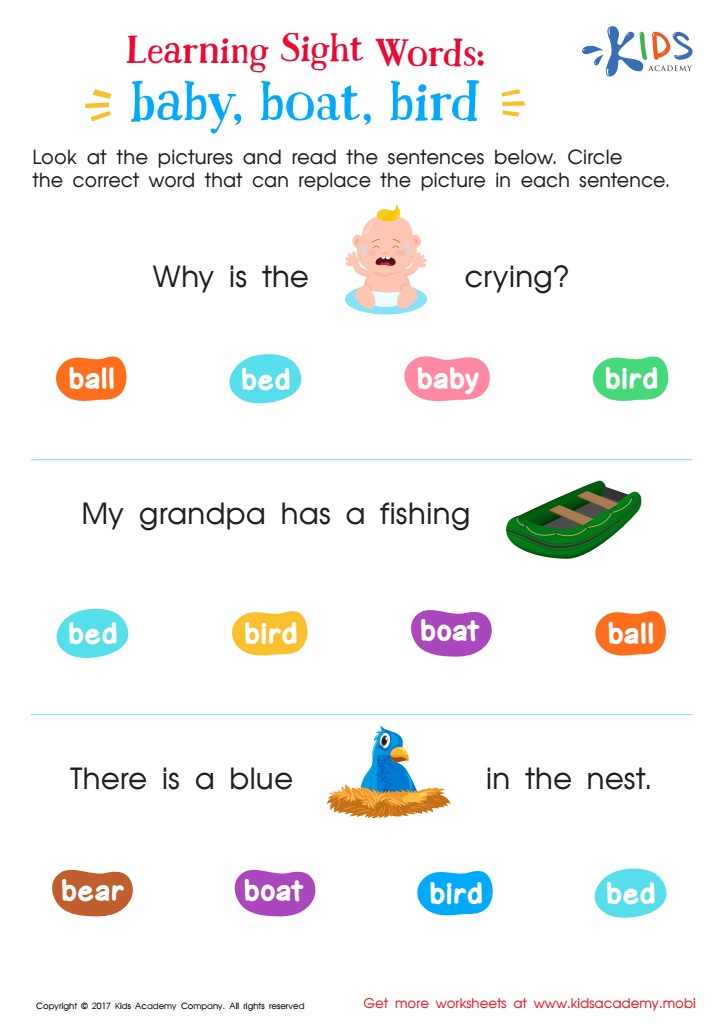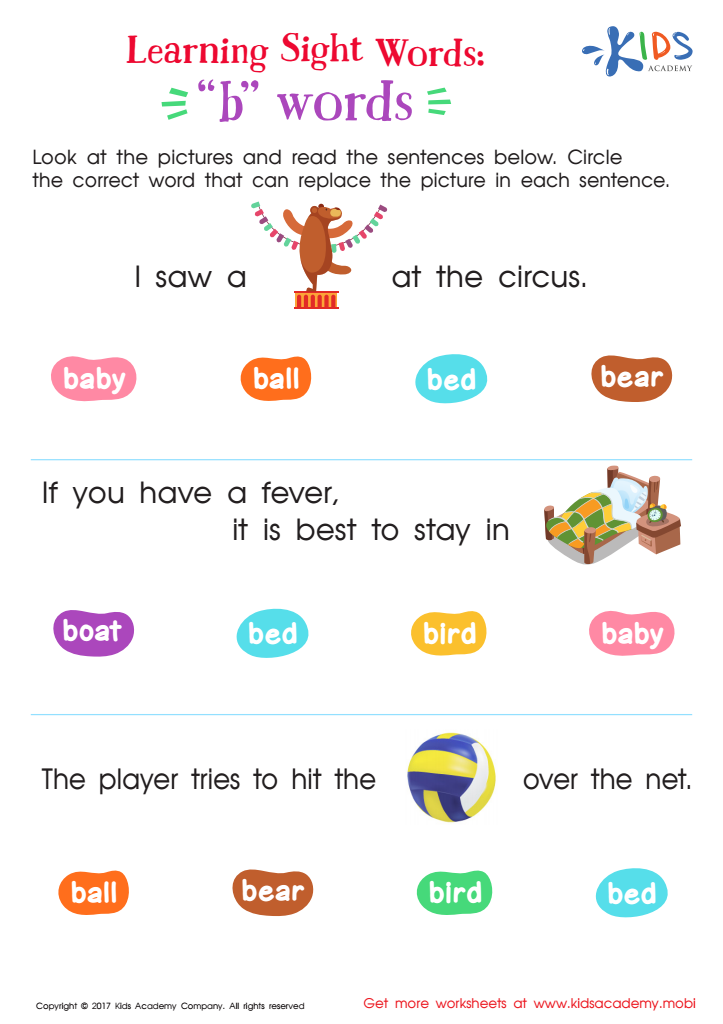Letter recognition Normal Building Vocabulary Worksheets for 6-Year-Olds
4 filtered results
-
From - To
Unlock your child's reading potential with our "Letter Recognition Normal Building Vocabulary Worksheets for 6-Year-Olds!" Designed specifically for early readers, these engaging worksheets help students identify and practice both uppercase and lowercase letters. Through fun exercises and colorful illustrations, children will build a strong vocabulary foundation while enhancing their letter recognition skills. Perfect for classroom use or at-home practice, our worksheets make learning enjoyable and effective. Boost your child's confidence and watch their reading abilities soar as they master the alphabet and build essential vocabulary skills. Download now from Kids Academy and start the journey to literacy success!


Recognize Letters l and i Worksheet


Tracing Fun Worksheet


Baby, Boat, Bird Worksheet Sight Words Worksheet


"B" Words Printable Sight Words Worksheet
Letter recognition and vocabulary building are crucial foundational skills for 6-year-olds, serving as the cornerstones of early literacy. When children recognize letters and their associated sounds, they begin to decode words, which is essential for reading fluency. As they identify letters, they can start to connect these with sounds, forming the building blocks for phonemic awareness.
At this age, a rich vocabulary significantly enhances comprehension skills. The wider the range of words a child knows, the easier it becomes for them to understand stories and sentences. This is directly linked to their reading success; children who lag in vocabulary often struggle with academic texts and instructions in later years.
Parents and teachers should care about letter recognition and vocabulary building because these skills profoundly impact a child's confidence and enthusiasm for learning. Early exposure and practice in recognizing letters and understanding words boost cognitive development. When children feel confident in their abilities, their motivation to read independently increases, fostering a lifelong love for reading.
Finally, strong early literacy skills pave the way for future academic achievement. A solid understanding of letter recognition and a robust vocabulary serve as predictors for later success in reading and writing, making it imperative for parents and teachers to support these crucial early learning experiences.

 Assign to My Students
Assign to My Students






























